Psychoanalysis is a set of theories and therapeutic techniques that deal in part with the unconscious mind, and which together form a method of treatment for mental disorders. The discipline was established in the early 1890s by Sigmund Freud, whose work stemmed partly from the clinical work of Josef Breuer and others. Freud developed and refined the theory and practice of psychoanalysis until his death in 1939. In an encyclopedic article, he identified the cornerstones of psychoanalysis as "the assumption that there are unconscious mental processes, the recognition of the theory of repression and resistance, the appreciation of the importance of sexuality and of the Oedipus complex." Freud's colleagues Alfred Adler and Carl Gustav Jung developed offshoots of psychoanalysis which they called individual psychology (Adler) and analytical psychology (Jung), although Freud himself wrote a number of criticisms of them and emphatically denied that they were forms of psychoanalysis. Psychoanalysis was later developed in different directions by neo-Freudian thinkers, such as Erich Fromm, Karen Horney, and Harry Stack Sullivan.

Sándor Ferenczi was a Hungarian psychoanalyst, a key theorist of the psychoanalytic school and a close associate of Sigmund Freud.
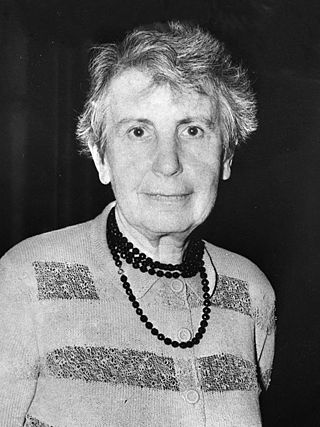
Anna Freud CBE was a British psychoanalyst of Austrian–Jewish descent. She was born in Vienna, the sixth and youngest child of Sigmund Freud and Martha Bernays. She followed the path of her father and contributed to the field of psychoanalysis. Alongside Hermine Hug-Hellmuth and Melanie Klein, she may be considered the founder of psychoanalytic child psychology.
Heinz Kohut was an Austrian-born American psychoanalyst best known for his development of self psychology, an influential school of thought within psychodynamic/psychoanalytic theory which helped transform the modern practice of analytic and dynamic treatment approaches.
Nancy Julia Chodorow is an American sociologist and professor. She began her career as a professor of Women's studies at Wellesley College in 1973, and from 1974 on taught at the University of California, Santa Cruz, until 1986. She then was a professor in the departments of sociology and clinical psychology at the University of California, Berkeley until she resigned in 1986, after which she taught psychiatry at Harvard Medical School/Cambridge Health Alliance. Chodorow is often described as a leader in feminist thought, especially in the realms of psychoanalysis and psychology.
Relational psychoanalysis is a school of psychoanalysis in the United States that emphasizes the role of real and imagined relationships with others in mental disorder and psychotherapy. 'Relational psychoanalysis is a relatively new and evolving school of psychoanalytic thought considered by its founders to represent a "paradigm shift" in psychoanalysis'.
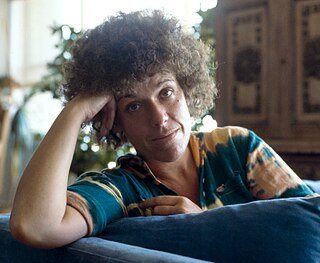
Judith Rossner was an American novelist, best known for her acclaimed best sellers Looking for Mr. Goodbar (1975) and August (1983).

Helene Deutsch was a Polish-American psychoanalyst and colleague of Sigmund Freud. She founded the Vienna Psychoanalytic Institute. In 1935, she immigrated to Cambridge, Massachusetts, where she maintained a practice. Deutsch was one of the first psychoanalysts to specialize in women. She was a Fellow of the American Academy of Arts and Sciences.
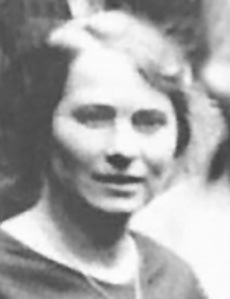
Sabina Nikolayevna Spielrein was a Russian physician and one of the first female psychoanalysts. She was in succession the patient, then student, then colleague of Carl Gustav Jung, with whom she had an intimate relationship during 1908–1910, as is documented in their correspondence from the time and her diaries. She also met, corresponded, and had a collegial relationship with Sigmund Freud. She worked with and psychoanalysed Swiss developmental psychologist Jean Piaget. She worked as a psychiatrist, psychoanalyst, teacher and paediatrician in Switzerland and Russia. In a thirty-year professional career, she published over 35 papers in three languages, covering psychoanalysis, developmental psychology, psycholinguistics and educational psychology. Among her works in the field of psychoanalysis is the essay titled "Destruction as the Cause of Coming Into Being", written in German in 1912.
The International Psychoanalytical Association (IPA) is an association including 12,000 psychoanalysts as members and works with 70 constituent organizations. It was founded in 1910 by Sigmund Freud, from an idea proposed by Sándor Ferenczi.
Identification is a psychological process whereby the individual assimilates an aspect, property, or attribute of the other and is transformed wholly or partially by the model that other provides. It is by means of a series of identifications that the personality is constituted and specified. The roots of the concept can be found in Freud's writings. The three most prominent concepts of identification as described by Freud are: primary identification, narcissistic (secondary) identification and partial (secondary) identification.
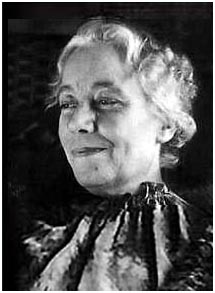
Karen Horney was a German psychoanalyst who practiced in the United States during her later career. Her theories questioned some traditional Freudian views. This was particularly true of her theories of sexuality and of the instinct orientation of psychoanalysis. She is credited with founding feminist psychology in response to Freud's theory of penis envy. She disagreed with Freud about inherent differences in the psychology of men and women, and like Adler, she traced such differences to society and culture rather than biology.
Edward George Glover was a British psychoanalyst. He first studied medicine and surgery, and it was his elder brother, James Glover (1882–1926) who attracted him towards psychoanalysis. Both brothers were analysed in Berlin by Karl Abraham; indeed, the "list of Karl Abraham's analysands reads like a roster of psychoanalytic eminence: the leading English analysts Edward and James Glover" at the top. He then settled down in London where he became an influential member of the British Psycho-Analytical Society in 1921. He was also close to Ernest Jones.
Mohammed Masud Raza Khan was a Pakistani-British psychoanalyst. His training analyst was Donald Winnicott. Masud Raza Khan was a protege of Sigmund Freud's daughter Anna Freud, and a long-time collaborator with Donald Winnicott.

Hermine Hug-Hellmuth was an Austrian psychoanalyst. She is regarded as the first psychoanalyst practicing with children and the first to conceptualize the technique of psychoanalysing children.
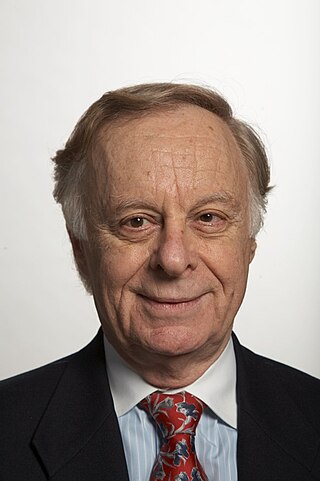
Henry Zvi Lothane is a Polish-born American psychiatrist, psychoanalyst, educator and author. Lothane is currently Clinical Professor at Icahn School of Medicine at Mount Sinai, New York City, specializing in the area of psychotherapy. He is the author of some eighty scholarly articles and reviews on various topics in psychiatry, psychoanalysis and the history of psychotherapy, as well as the author of a book on the famous Schreber case, entitled In Defense of Schreber: Soul Murder and Psychiatry. In Defense of Schreber examines the life and work of Daniel Paul Schreber against the background of 19th and early 20th century psychiatry and psychoanalysis.

Eva Marie Rosenfeld was a Jewish-German-British psychoanalyst, an analysand of Sigmund Freud and Melanie Klein.
Therese Benedek was a Hungarian-American psychoanalyst, researcher, and educator. Active in Germany and the United States between the years 1921 and 1977, she was regarded for her work on psychosomatic medicine, women's psychosexual development, sexual dysfunction, and family relationships. She was a faculty and staff member of the Chicago Institute for Psychoanalysis from 1936 to 1969.
The New Center for Psychoanalysis is a psychoanalytic research, training, and educational organization that is affiliated with the American Psychoanalytic Association and the International Psychoanalytic Association. It was formed in 2005 from the merger of two older psychoanalytic organizations, the Los Angeles Psychoanalytic Society and Institute (LAPSI) and the Southern California Psychoanalytic Institute and Society (SCPIS), which had been founded as a single organization in the 1940s and then split around 1950.
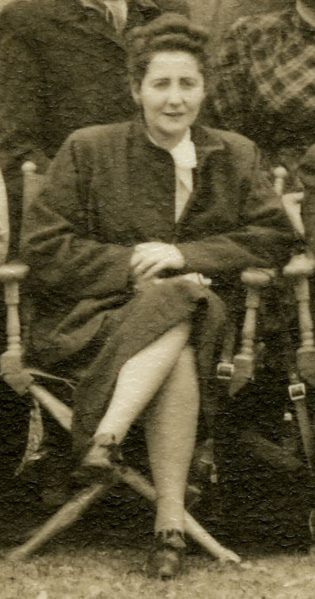
Elisabeth Rozetta Geleerd Loewenstein was a Dutch-American psychoanalyst. Born to an upper-middle-class family in Rotterdam, Geleerd studied psychoanalysis in Vienna, then London, under Anna Freud. Building a career in the United States, she became one of the nation's major practitioners in child and adolescent psychoanalysis throughout the mid-20th century. Geleerd specialized in the psychoanalysis of psychosis, including schizophrenia, and was an influential writer on psychoanalysis in childhood schizophrenia. She was one of the first writers to consider the concept of borderline personality disorder in childhood.










